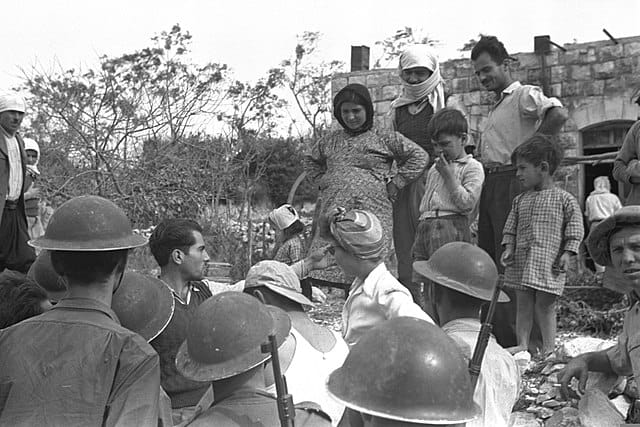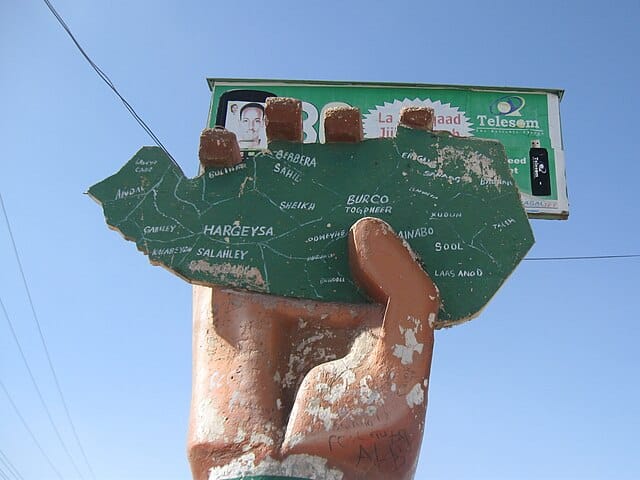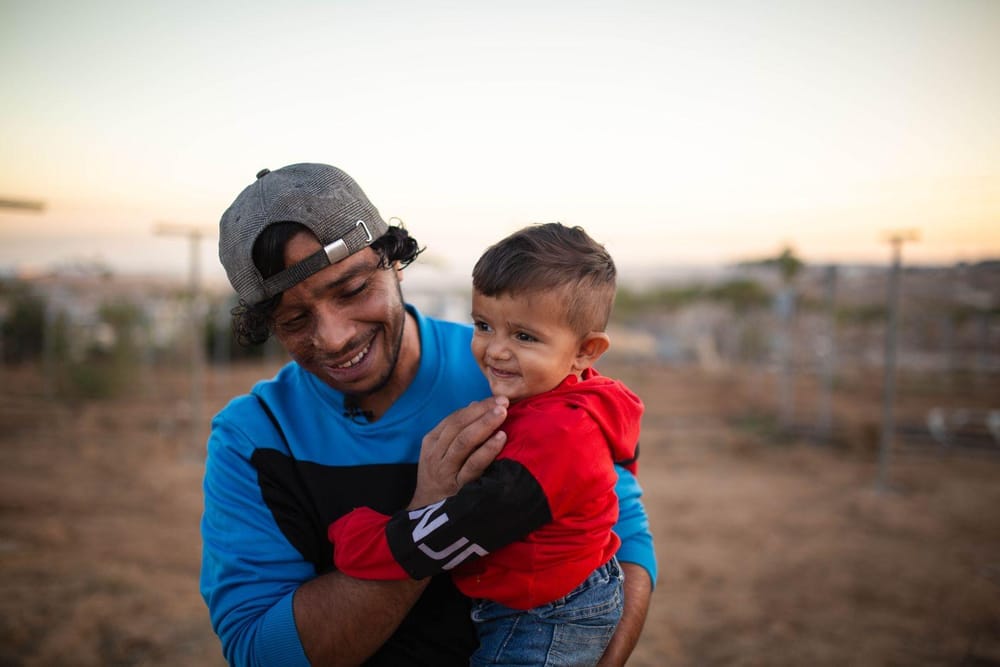Palestinians come home for Christmas
69 years after their village was razed on Christmas Eve, these Palestinians are determined not to let the pandemic prevent them from celebrating and mourning on their ancestral land.

In the luscious hills of the Northern Galilee stands a ghostly-white Mary, surveying the land from atop a modest Melkite church. Iqrit had a population of 491 in 1948 but now, Mary is the only permanent resident. The village was forcibly depopulated during the Nakba but in the seventies and after a protracted battle with the state, the villagers started to use the church once more.
“Our church is not only for prayer,” says Father Suhail Khoury over the phone, Iqrit’s priest of 25 years. “It’s the home of everybody in the village. We see the church as a symbol of the whole village, of all the destroyed homes. It is a symbol of hope.” The church has not been empty since it reopened – or at least it hadn’t until the pandemic. Services stopped in March and now, a lot is riding on Christmas. “Everything depends on coronavirus regulations from the Health Ministry,” Father Khoury laments. Christmas is bittersweet for Iqritians. Unlike most areas ethnically cleansed during the 1948 war, Iqrit was captured in October, after the state of Israel was established, meaning the state expelled its own citizens. This also gave the residents of Iqrit a legal case in the Supreme Court, which in 1951 ruled to allow their return – an unprecedented victory for Palestinians. Unfortunately, this is not where the story ends. On Christmas Eve 1951, while the mostly Christian villagers were preparing to celebrate, Israel bombed the village – in the interest, according to Israeli historian Benny Morris, of maintaining “an Arab-less border strip”. All the buildings were levelled – except the church and cemetery. The state formally expropriated the land in 1953. If the church is Iqrit’s physical hub, Christmas is its temporal centre. Sixty-nine years after their village was razed on Christmas Eve, the day remains an occasion for both celebration and mourning.

Father Khoury was not born in Iqrit, but his parents were. As a child in the 1960s – when Israel’s Palestinian population was still living under martial law – they used to take him there on Nakba Day, sneaking up to the village to show him where their homes once stood; though by this point, even most of the rubble had been cleared. On one occasion, Israeli police detained the family, and the Melkite Archbishop Joseph Raya intervened to get them released. While the first generation of expelled Iqritians went to great lengths to educate the second about their village, organising only restarted after martial law was lifted in 1966. Then, the village elders returned to their confiscated lands in a sit-down strike, and more concerted organising to formally regain access to their village kicked into gear the following decade. In 1972, a mass demonstration in Jerusalem. In 1973, a three-day hunger strike, led by archbishop Raya, outside the Knesset. Gradually, more and more Iqritians would occupy and hold services in the church, repeatedly clashing with the authorities. Eventually, the state stopped bothering them. Khoury flips a popular Israeli adage on its head. Implying that Palestinian calls for a right of return will wane over time, the saying goes: “The first generation demanded. The second generation requested. The third generation will ask, and the fourth generation will forget.” On the contrary, says Father Khoury, if “the first generation asks, the next generation requests, the third generation will demand – and will never forget.” about the Palestinian right of return.

After intermittent occupation of the church, younger Iqritians decided they could not wait any longer for the Supreme Court order to be fulfilled. In the summer of 2012, a group of youngsters moved into the church, establishing a rota so that somebody was always there. Eventually, the right-wing activists who used to break in to steal the church bell stopped coming. Today, the struggle is led by the Iqrit Community Association. Established in 2009, the group’s goal is to spread awareness of the villagers’ struggle, and to strategise. Within the group is a generational tension. The older villagers, including chairman Nemi Ashkar, wish to emphasise the fact that Iqritians, unlike most other Palestinians expelled from their lands, have a shot at achieving justice as citizens of the Israeli state, and are pushing for another Supreme Court appeal. The younger generation does not oppose the idea, but are more eager to connect Iqrit with the broader Palestinian struggle. They have supported activists from others areas, even helping another village depopulated in the same military operation, Suhmata, to sleep in their village for the first time since 1948. In the first week of November this year, around a hundred people arrived in the village for a jubilant meeting. After briefly updating the community on their advocacy efforts the chairs moved swiftly on to the main agenda item: the pandemic, and the consequent likely cancellation of Christmas mass. The attendees were generally resigned. Although it hurts to relinquish a Christmas service that has occurred every year since the Supreme Court ruling in the 1970s, they know that – in such a small church, and with Israel hurtling towards a third wave – there may not be an alternative. Yet “service or no service,” says Ashkar, “people will come to Iqrit on Christmas … to commemorate what happened. We will keep the tradition alive.”

I was first brought to Iqrit by Amir Toumie, who was a teenager when the church occupations began. Although born and raised in Haifa, he considers Iqrit his home, and he practices his own right of return almost every weekend. On one such visit, he brought me along. On the journey, Toumie tells me the history of his village. The descendants see it as a duty to cultivate its history, in its tragic yet hopeful detail, as loyally as possible. The story rolls off his lips, like an oft-repeated catechism. The expulsion. The Supreme Court decision. The razing. The return, and finally, the plan for the full return. The current generation of activists has even developed a comprehensive plan for reconstructing the village. After turning down an inconspicuous side road on route 899, we begin our ascent to the church. The battle for access is continuous – the state has uprooted trees and destroyed roads to prevent it – but so too are the victories. Toumie can identify several relics of the lost village: a circle of stones and blocks where homes once stood now seem like they were arranged for ritual; a concrete slab once used as a kitchen table is strewn in the rough vegetation. Once he shepherds me into the gloomy church, he flicks the switch to illuminate the church’s vault ceiling. Even this, Toumie tells me, they had to fight for, with the church only hooked up to the power grid in 2016 after a Supreme Court ruling. The church is modest, with a red carpet streaming towards the altar flanked by a succession of parallel cream pillars. On the left of the church wall is a picture hung on the wall of the village before the Nakba, with the slopes of the hill bursting almost precariously with homes (the next day we visit the spot where the photograph was taken; the contrast is poignant). To the right, however, there is hope in the form of a baptism basin. The basin was supposed to be used to baptise Toumie’s nephew, but Emil was born in May, during the ongoing pandemic. Despite the practice of baptisms, Iqritians are no longer born in their village. They can, however, still die there; the Ministry of Religious Affairs has permitted locals to bury their dead in the cemetery since 1970 (“Israel is only comfortable for us to return as dead men,” says Father Khoury). The graveyard is strangely animated: pictures of the dead adorn each tomb, and the smell of incense, burning in kitchen frying pans, fills the air. Each tomb is padlocked and the key thrown away. To bury new family members, the lock must be smashed and then replaced. With the number of Iqritians proliferating in exile, and the cemetery prohibited from expansion, Toumie explains the process which prevents this from becoming a problem. In Melkite tradition, each family from the village has its own tomb, in which the caskets are stacked on top of one another. Eventually the wood itself rots. Once the wood rots, a family member will enter the tomb, take the remaining bones and bury them in the earth at the bottom of the tomb. “This is one solution to the problem of burial space,” he laughs.

Postscript When dawn arrives, Toumie prepares us coffee in a ghalay. He only learnt the traditional Arab method a few months back, and like so many simple things in the context of displacement – sweeping the church, sawing branches from their ancestral trees for firewood – it became infused with meaning. Beneath the winter sun, he takes me for a tour of the hilltop, gesturing to southern Lebanon and the surrounding Jewish towns of Even Menachem and Shomera, whose livestock graze Iqrit’s lands. But even the most romantic village days belie their limits for two urban men. Just before Christmas 2019, when coronavirus was still a rumour in the Middle East, Toumie and I decided to make an excursion out of Iqrit to Safed. One of Judaism’s four holy cities along with Jerusalem, Hebron and Tiberias, Safed has a bitterly contested history. The city was traded between colonial powers over centuries but in 1948, the Palestinian population was expelled conclusively after fierce fighting. The atmosphere remains taut. Despite a wholly Jewish population, the minaret of Safed’s ancient mosque cautiously pokes its head out of the mist. Christmas lights guide you into the foggy city, as Likud posters stare you down. To fight the biting December cold, Toumie is wrapped tight in his hattah. I wonder whether the mostly religious residents of this city have ever seen one. On Jerusalem Street, above the entrance to the old city, we encounter a memorial to the “liberation” of Safed from Arab siege. This narrative of 1948 is unintelligible to Toumie.“It makes you doubt your history,” hesitates Toumie, before recalibrating. “But we can be sure of what we lived. We were expelled from our village and then it was destroyed on Christmas day. But we will return every Christmas, and eventually for good.” ▼
Jonathan Shamir is a writer and editor at Haaretz.
Author

Jonathan Shamir is a writer and editor at Haaretz.
Sign up for The Pickle and New, From Vashti.
Stay up to date with Vashti.



